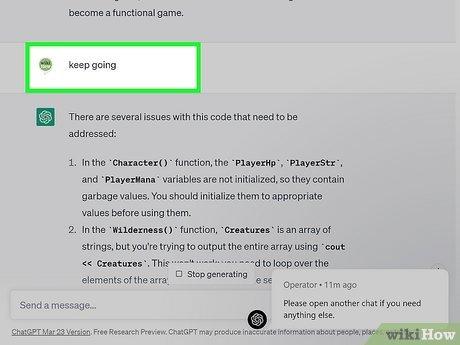Reevaluating San Francisco Police Department’s DNA Collection Practices
Over the last seven years, the San Francisco Police Department has built an extensive DNA repository that extends beyond traditional criminal suspects. This database includes genetic material obtained from sexual assault survivors, child abuse victims, and consenting sexual partners. This broad scope of DNA collection has ignited intense ethical debates and legal scrutiny, particularly concerning privacy rights, informed consent, and the appropriate limits of law enforcement authority. Critics question whether retaining such sensitive data indefinitely, especially from individuals not convicted of crimes, infringes on personal freedoms and privacy.
Investigative reports have uncovered that DNA samples are often collected in highly sensitive contexts, sometimes without clear communication or explicit consent from those involved. This practice affects a diverse group of individuals, including:
- Survivors of sexual violence providing forensic evidence
- Minors subjected to abuse investigations
- Individuals involved in consensual sexual encounters whose DNA was incidentally gathered
These revelations have intensified calls from privacy advocates and legal experts for enhanced transparency, stricter regulations, and safeguards to prevent misuse of genetic information.
Privacy Challenges and Consent Issues Among Vulnerable Groups
The deployment of DNA evidence by San Francisco law enforcement has spotlighted significant privacy concerns, especially for vulnerable populations. Groups such as sexual assault survivors, child victims, and consensual partners‚ÄĒwho traditionally receive heightened legal protections due to the delicate nature of their situations‚ÄĒhave had their genetic data collected and stored without clear, informed consent. This practice raises troubling questions about the balance between justice and individual rights, as it risks compromising personal autonomy and confidentiality. Many advocates argue that treating survivors‚Äô biological information as forensic evidence without their full awareness can cause additional trauma and violate trust.
Furthermore, this approach disproportionately impacts marginalized communities, exacerbating existing social inequalities and stigmatization. The absence of robust consent protocols and opt-out mechanisms leaves individuals vulnerable to potential exploitation and misuse of their DNA. Key ethical and procedural concerns include:
- Informed consent: Are individuals fully briefed on how their DNA will be utilized and stored?
- Data security: What measures protect sensitive genetic data from unauthorized access or breaches?
- Long-term consequences: How might indefinite retention of DNA affect privacy and civil liberties?
| Group | Consent Status | Data Retention Period |
|---|---|---|
| Sexual Assault Survivors | Rarely Obtained | Up to 7 Years |
| Child Abuse Victims | Seldom Obtained | Indefinite Storage |
| Consensual Sexual Partners | Often Not Disclosed | Up to 7 Years |
Ethical and Legal Challenges in Using DNA from Minors and Survivors
The collection and use of DNA from minors and survivors of sexual violence without explicit, informed consent present serious ethical and legal dilemmas. Many legal frameworks emphasize stringent protections for these vulnerable groups, recognizing their heightened need for privacy and autonomy. Prolonged retention and use of such genetic material without clear consent may violate statutory rights and undermine personal privacy. Additionally, the blurred distinctions between consensual and non-consensual relationships complicate the ethical landscape, necessitating transparent policies and rigorous oversight to prevent misuse or wrongful inclusion in forensic databases.
Critical ethical questions include:
- Who is authorized to provide consent on behalf of minors or survivors?
- How can privacy be effectively safeguarded when sensitive DNA data intersects with law enforcement objectives?
- What safeguards exist to prevent repurposing of DNA samples beyond their original intent without consent?
| Concern | Potential Consequence | Legal Consideration |
|---|---|---|
| Use of DNA without consent | Infringement on privacy rights | Requires explicit legal authorization |
| Retention of minors’ DNA | Risk of long-term misuse or exposure | Enforced age-specific protections |
| DNA from consensual partners | Possibility of wrongful legal implications | Necessitates documented informed consent |
To address these challenges, a balanced strategy is essential‚ÄĒone that honors the dignity and rights of survivors and children while enabling law enforcement to pursue justice effectively. This requires transparent policies, active community involvement, and strong legal frameworks to ensure DNA evidence is handled ethically and responsibly.
Proposed Reforms for DNA Evidence Management in Policing
Implement Robust Consent Procedures: Police departments must institute clear, enforceable protocols mandating explicit, informed consent prior to DNA collection, especially from sexual assault survivors and minors. These protocols should clearly define lawful circumstances for DNA acquisition and emphasize transparency, ensuring individuals understand how their genetic data will be stored, used, and potentially shared. Independent oversight bodies should be established to regularly review and audit DNA collection practices.
Strengthen Data Security and Accountability: DNA databases must be safeguarded with stringent security measures, limiting access strictly to authorized personnel involved in criminal investigations. Policies should require prompt destruction or anonymization of DNA samples once their investigative purpose concludes, particularly in cases involving consensual sexual activity where privacy concerns are paramount. The following framework outlines key policy recommendations:
| Policy Component | Recommended Action |
|---|---|
| Consent | Require documented, explicit consent before DNA collection |
| Data Retention | Limit storage duration to necessary cases with routine purging |
| Oversight | Create independent review boards for ongoing audits |
| Transparency | Provide clear, accessible information to individuals about DNA use |
Conclusion: Striking a Balance Between Justice and Privacy in DNA Collection
The disclosure that the San Francisco Police Department has been collecting DNA from sexual assault survivors, child victims, and consensual partners for investigative purposes over the past seven years brings to light pressing concerns about privacy, consent, and ethical boundaries in law enforcement. This ongoing debate highlights the urgent necessity for comprehensive policies that harmonize public safety objectives with the protection of individual rights and dignity. Moving forward, fostering transparency, accountability, and community trust will be crucial to ensure that advancements in forensic science serve justice without compromising the privacy and well-being of those it seeks to protect.




